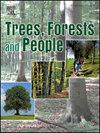影响赞比亚西北部和卢萨卡省低收入家庭用替代能源替代传统木炭烹饪的因素
IF 2.9
Q1 FORESTRY
引用次数: 0
摘要
一项研究分析了来自赞比亚卢萨卡和西北省份的324个家庭的数据,以了解影响从木柴和传统木炭等传统燃料转向替代能源的因素。在西北省农村地区,户主的受教育程度和烹饪时间对能源选择有显著影响。相反,在卢萨卡省的城市地区,较富裕和受教育程度较高的家庭更倾向于采用较清洁的烹饪燃料。然而,尽管卢萨卡的收入水平有所提高,并有电网供电,但许多城市家庭仍继续使用传统的木炭。除了收入之外,负荷减少和烹饪时间等因素也会影响能源决策。该研究建议推广多样化的烹饪能源选择,如太阳能、液化石油气(LPG)、煤球或颗粒,特别是在收入较高的城市地区,作为电力危机期间的备用能源或补充薪材。此外,它强调在提倡这些替代方案时要考虑特定地点的因素。本文章由计算机程序翻译,如有差异,请以英文原文为准。
Factors influencing low-income households in substituting traditional charcoal with alternative energy sources for cooking in Northwestern and Lusaka Province, Zambia
A study analyzed data from 324 households in Zambia from Lusaka and Northwestern provinces to understand factors influencing the shift from traditional fuels like firewood and traditional charcoal to alternative energy sources. In rural areas of Northwestern Province, the education level of the household head and cooking duration significantly impacted energy choices. Conversely, in urban areas of Lusaka Province, wealthier and more educated households showed a higher propensity to adopt cleaner cooking fuels. However, despite higher income levels and access to grid electricity, many urban households in Lusaka continued using traditional charcoal. Beyond income, factors such as load shedding and cooking time considerations also influenced energy decisions. The study recommends promoting diverse cooking energy options—such as solar energy, Liquefied Petroleum Gas (LPG), and briquettes or pellets—especially in urban areas with higher incomes, to serve as backups during electricity crises or complement fuelwood. Additionally, it emphasizes considering location-specific factors when advocating for these alternatives.
求助全文
通过发布文献求助,成功后即可免费获取论文全文。
去求助
来源期刊

Trees, Forests and People
Economics, Econometrics and Finance-Economics, Econometrics and Finance (miscellaneous)
CiteScore
4.30
自引率
7.40%
发文量
172
审稿时长
56 days
 求助内容:
求助内容: 应助结果提醒方式:
应助结果提醒方式:


